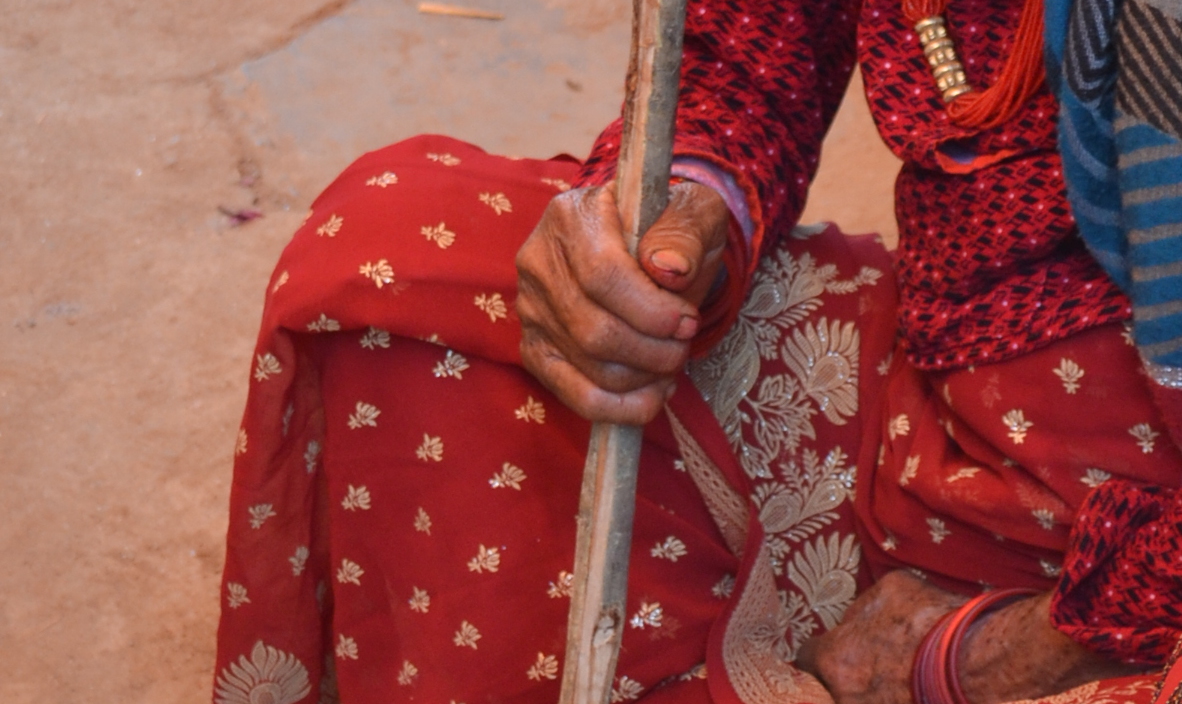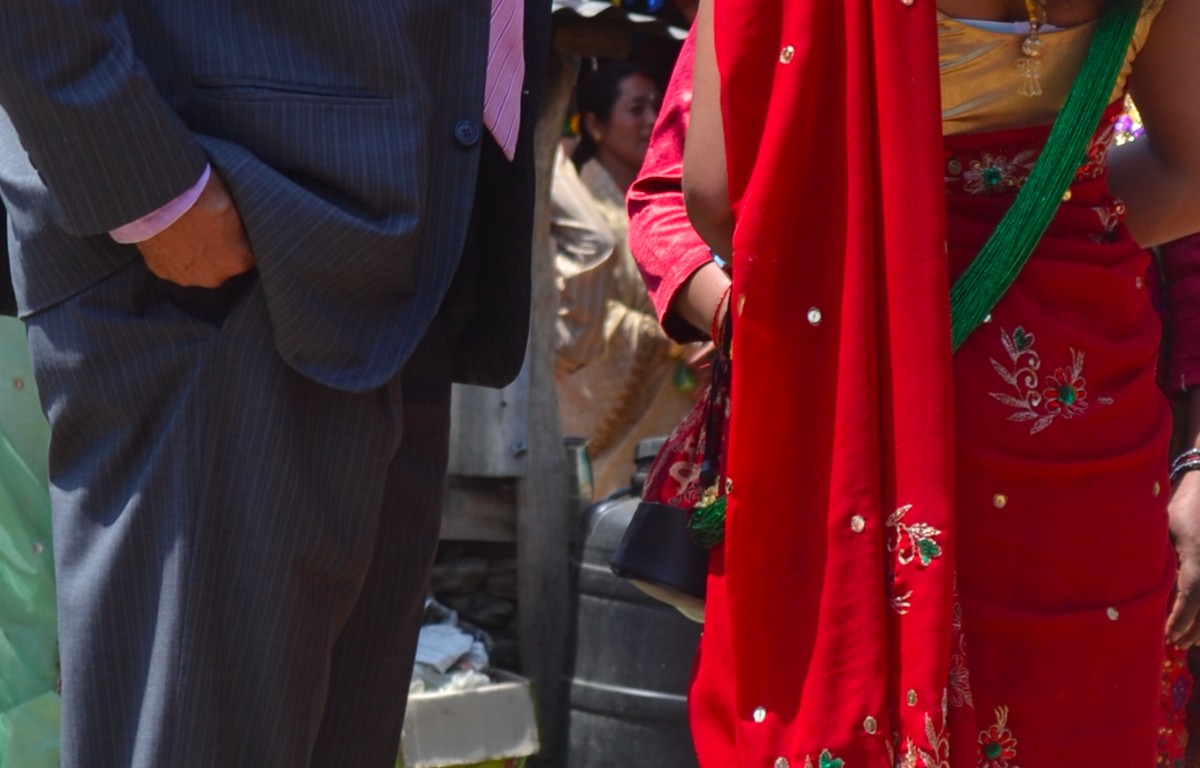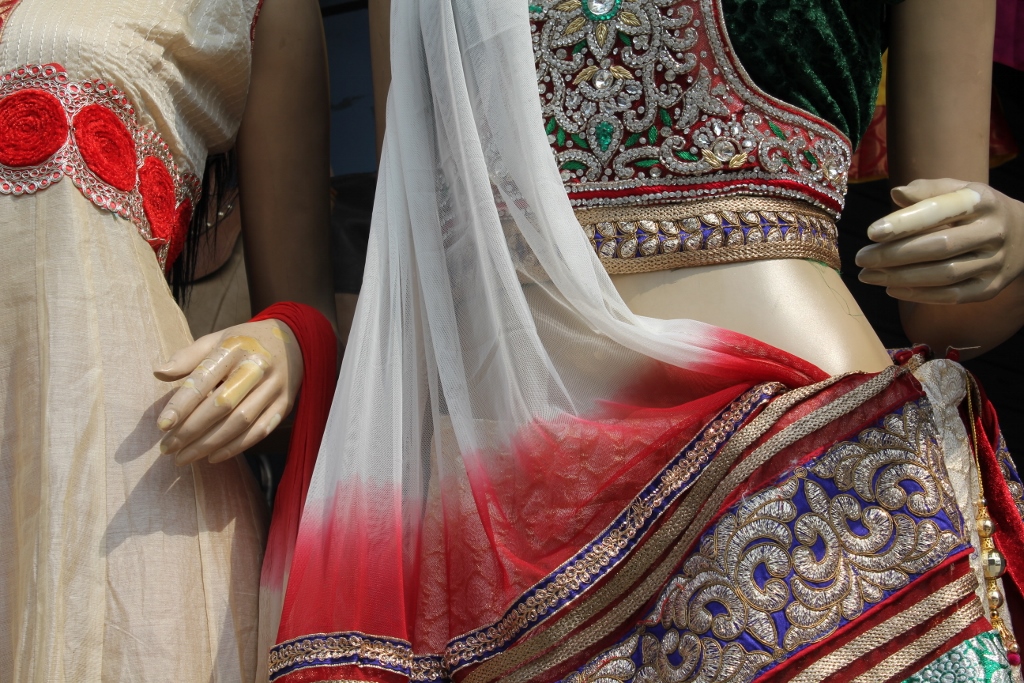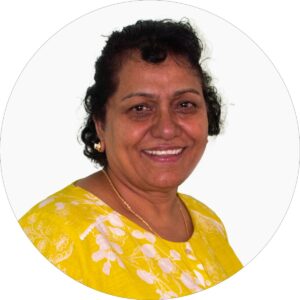Sahana*
Widow
One child
“I am a widow and my village blamed me that I caused the death of my husband. When a young buffalo died, the situation got worse – the people of my village said that I am a witch and it was again my fault. The members of the village beat and tortured me. They hit me very hard and tried to make me eat human excrement. A member of The Women’s Foundation living in a nearby village heard about it and rushed, together with the president of WFN, to my village. The people of my village had left me lying on a little path with my five year old daughter crying next to me. I vomited blood and I barely could feel my body. The two members of WFN found me there and one stayed with me, while the other one tried to find someone who would help to bring me to a hospital. Nobody in the village wanted to help. At the main road, the WFN member found a taxi and with two men, they helped to bring me to the main road. With another taxi we made it to a hospital in Kathmandu. I am happy that I survived and that WFN gave me shelter and helped me to cope with what had happened to me. When I recovered, they organised a job for me in a handicraft centre. I rented my own little flat and now I feel safe and I am happy that I can take care for me and my daughter.”
Luniva*
Widow
One child
“I lived in a little hut by the riverside. I was very ill for four months and when the fever was so high, my body started to spasm uncontrollably and I hallucinated and spoke in an irrational way due to the fever. My neighbour called the shaman to heal me. When the shaman arrived, around 50 villagers gathered to see the prayers and the process going on. The shaman looked at me and said that there is a witch inside me. He asked the villagers to heat up spoons (until they were burning red) and put them on my face. In this way, the shaman thought the witch would leave my body. The villagers did as they were asked. Some holding me back, while others would burn my face with the spoons. I screamed as much as I could, but nobody released my. My daughter, 13 years old, saw everything and was screaming and crying. When they left me, I knew that I could not go to the hospital, as I had no money. So I stayed at my hut, suffering from the pain. Members of The Women’s Foundation Nepal heard about me and saved me. They brought me to the hospital and took care of my daughter. Today I am living near an Office of WFN in a rural district, I feel safe there. Thanks to WFN I have a good job and I can send my daughter to school.”
*names changed
In Nepal, only 19.7% of women own land. This is only 5% of the total land of Nepal. Of these women only 11% have control over their land. In 2015 the Government changed the law and today, there is a 25-50% discount on the registration fee when the land is registered under to women’s name. After the new civil code in 2018 daughters are entitled to keep their share of their parents property after getting married. That means equal rights for sons and daughters. After a divorce women are also entitled to their husband’s share of property, if the divorce is the husband’s fault. This brings a positive change. In a patriarchal country like Nepal, access to land is fundamental to women’s empowerment. Land rights bring security, independence and confidence, which together enable women to become active in all social and political arenas. Women’s ownership of land encourages men to view women as equals, which is shown to give women more decision making power in their households and decrease domestic violence (US Aid Country Profile).
Rajani*
Arranged marriage at the age of 15 years old
“My marriage was arranged when I was 15 years old. After one year, my husband married another woman and moved to Kathmandu. Sometimes he visited me in the village, but always treated me badly and beat me. Once so bad, that he broke my leg. Neither my parents nor his parents helped me. Everyone said, that it was my bad luck. I did believe it was my fate/destiny. But one day, his parents did not allow me to live in the house anymore. I got a small plot of land and my neighbours helped me to build a small house, made out of grass and stone. Also they gave me work, so I could earn a little money to buy my own food. Sometimes, my husband and his other wife visited the village. They treated me badly and took away my food and pots. One night, they locked me in my little house and tried to burn the house down. I escaped and my husband was running after me with a knife. My neighbours were the ones who saved me. The next day, I talked to a community member and he gave me the address of The Women’s Foundation Nepal and the money for a bus to Kathmandu. For 16 years I stayed in this bad marriage. I was 31 years old and I believed that I was an old woman. I had lost all hope for my future. But WFN changed that. They gave me back my confidence. I started to work as a cook at the Shelter Home. WFN’s lawyers registered my case in court and after two years I succeeded in getting money from my husband for the property which I am entitled to. I received NRS 200,000 (USD 2700) and used most of this money to buy a small piece of land in Kathmandu where I have built a house to live in. I feel I have respect from other people now. The women at the Shelter Home showed me great support and helped me to believe that I was worth something. WFN helped me to prepare my land for farming. I am independent now and shaping my own future.”
*name changed
It is difficult to get a divorce in Nepal. Legal changes have made it possible for a woman to divorce her husband and still keep some of the property, and even to gain custody rights. However, such court cases are lengthy and expensive. It typically takes many months to get a divorce case through court if the woman makes any kind of property or custody claims. Even worse than the time and money required to get a divorce is the social stigma put on a divorced woman. Many women are so terrified of being ostracized from their communities if they get a divorce that they will endure years of abuse instead.
Lakshmi*
Arranged marriage at the age of 16 years old
Two children “
My husband was very violent and abused me. He beat me almost daily and raped me whenever he liked. We had two sons together. One day I decided to leave this situation, and fled with my two boys. I wanted a divorce, but I feared social retaliation. My family asked me to not divorce, as this would ruin the family. My husband was still looking for me and when he found me he beat me in public. He harassed me on several occasions and he printed flyers with my phone number on, saying I was offering free sex. I had no energy anymore. I just wanted to live a happy life with my two children. So I asked The Women’s Foundation Nepal for help. The staff there convinced me, that I should divorce my husband and they helped me to push the case through court. My husband stopped harassing me, as I was in a strong community, protecting me. Eight years after I left him, I was finally legally independent and had custody of my children. I now work and raise my children and they are doing so well at school. I am very happy and free now.”
*name changed
In 2018 (2075/2076) 2230 rape cases and 786 attempted rapes were recorded. The rate is increasing rapidly, in 2014 (2071/2072) the police registered 981 cases. Unfortunately, most rape cases are not reported because women often do not know their legal rights and their families do not support them. Therefore most of the time trial doesn’t take place and no one is brought to justice. In addition to the legal challenge, victims face a prevailing chauvinistic view that rape is not a crime as the girl is going to have sex anyway. This includes the perspective that rape only means that the girl has sex earlier than she otherwise would have or that she isn’t happy about the conditions in which it occurred (Nepal Police).
It was during this meeting that the decision was made to establish an NGO dedicated to tackling such cases and providing legal support. The Women’s Foundation Nepal was born out of the collective determination to address these challenges and protect the rights of women and children. The organization began its journey with nine dedicated members from diverse backgrounds, including students, doctors, lawyers, and social workers. Together, we started organizing social programs and initiatives.
In an effort to seek justice, the Foundation took the matter to the Supreme Court, threatening legal action against the doctor and the negligent police. Miraculously, the very next day, the police located the missing girl. She had been forced into unpaid child labor at the doctor’s sister’s home. The Women’s Foundation Nepal successfully reunited her with her family, marking a significant victory in their pursuit of justice.
Since that pivotal moment, the Women’s Foundation Nepal has experienced remarkable growth. Today, we proudly boast thousands of members, seven district offices across Nepal, two child care centers, three shelters for survivors of abuse and violence, an organic farm, an onsite textile production center, scholarship programs, skills training for women, and free onsite legal support and psychological counseling services.
Tara Upreti
President , The Women’s Foundation Nepal
Ajala*
Sexually abused by school teacher
“I am from a small village in the Eastern part of Nepal. I went to school every day and was very thankful for that. I really enjoyed studying. When I was 16 years old, my schoolteacher sexually abused me after school. After this happened to me, I told it to my family and friends in the village but nobody supported me. They said, it was my fault and the harassment would not stop. I felt so unwelcomed, so wounded. I decided to leave this difficult situation and save myself. I heard about The Women’s Foundation Nepal and when I ran away from home my only wish was to reach their office. When I finally arrived at the WFN district office in Jhapa, they helped me and sent me to Kathmandu. Today I live at their shelter in Kathmandu. I am still processing the emotional trauma of my past. But I feel safe today and part of a big family, which understands my needs and supports me every day.”
Jyotika*
Raped and married at the age of 14 years old
Two children
“A man raped me, when I was 14 years old. I became pregnant. According to our tradition, I had no choice but to marry this man. Everyone said that it was my fault and because I had sex with him, I must marry him. I gave birth to a boy and later to a girl. My husband earned his money as a taxi driver. I never felt comfortable with him. He often used to come home late and very drunk. When he was drunk, he beat me and sometimes raped me again. He spent all his money on drinking and sometimes there was nothing left to buy food for the children and me. I worked in a carpet factory but my salary was never enough to meet all of our expenses. When he started to beat our children, I got very scared that he would actually kill one of them one day, because he was so aggressive and could not control himself when he started to beat me or one of the children. One day I heard about The Women’s Foundation Nepal in the media. My biggest wish was that my children could go to school. I asked them for support and they explained to me, that I did not have to stay with my husband and that rape is a crime. This meeting changed my life. I had enough courage to leave my violent husband, who abused me so many times. My children now liveat the WFN Shelter Home and I am so happy that they can go to school. I am living on my own close to them and after attending a training about weaving, sponsored by WFN, I am now working for their textile production centre.”
*names changed
November 25th in 1988 is a date that remains fresh in our memories – this was the date when the idea for The Women’s Foundation Nepal was born. It was on this particular day, following a college volleyball competition, that we, a group of young women students, were approached by a middle-aged couple asking if anyone had seen their daughter. She had been missing for three months.
The couple were landless, so they came to Kathmandu searching for work with their three children. They started to work in a carpet factory. After a few days in the factory, a doctor asked their nine-year old daughter to be his servant; she would help care for his children and during the day he would send her to school. Eight days later, the doctor came back to the carpet factory, telling the parents that their daughter stole 110 grams of gold and had escaped from his home. Since then, the frantic parents had been trying to locate her.
After hearing their story, 14 of us gathered together to help them. We visited the doctor, but he refused to meet with us. We went to a political party’s office to ask for support, but they did not take us seriously. Next, we brought our concerns to the police. They were rude and dismissive. They saw us as disturbing troublemakers and asked us to go back to our studies.
Undeterred by the lack of assistance, we, a group of 14 individuals decided to take matters into our own hands. We reached out to colleges, sharing the heartbreaking story and calling for a meeting to rally support in finding the missing girl. This gathering brought together 45 women, not only to discuss the specific case but also to address broader issues related to family and women’s rights.




